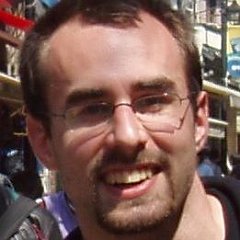SSA Translation Is an Abstract InterpretationDistinguished Paper
Static single assignment (SSA) form is a popular intermediate representation that helps implement useful static analyses, including global value numbering (GVN), sparse dataflow analyses, or SMT-based abstract interpretation or model checking. However, the precision of the SSA translation itself depends on static analyses, and a priori static analysis is even indispensable in the case of low-level input languages like machine code.
To solve this chicken-and-egg problem, we propose to turn the SSA translation into a standard static analysis based on abstract interpretation. This allows the SSA translation to be combined with other static analyses in a single pass, taking advantage of the fact that it is more precise to combine analyses than applying passes in sequence.
We illustrate the practicality of these results by writing a simple dataflow analysis that performs SSA translation, optimistic global value numbering, sparse conditional constant propagation, and loop-invariant code motion in a single small pass; and by presenting a multi-language static analyzer for both C and machine code that uses the SSA abstract domain as its main intermediate representation.
Thu 19 JanDisplayed time zone: Eastern Time (US & Canada) change
13:30 - 14:45 | |||
13:30 25mTalk | SSA Translation Is an Abstract InterpretationDistinguished Paper POPL Matthieu Lemerre Université Paris-Saclay - CEA LIST DOI Pre-print | ||
13:55 25mTalk | Dynamic Race Detection with O(1) SamplesDistinguished Paper POPL Mosaad Al Thokair University of Illinois at Urbana-Champaign, Minjian Zhang University of Illinois at Urbana-Champaign, Umang Mathur National University of Singapore, Mahesh Viswanathan University of Illinois at Urbana-Champaign Link to publication DOI Pre-print | ||
14:20 25mTalk | Statically Resolvable Ambiguity POPL Viktor Palmkvist KTH Royal Institute of Technology, Elias Castegren Uppsala University, Philipp Haller KTH Royal Institute of Technology, David Broman KTH Royal Institute of Technology DOI | ||
